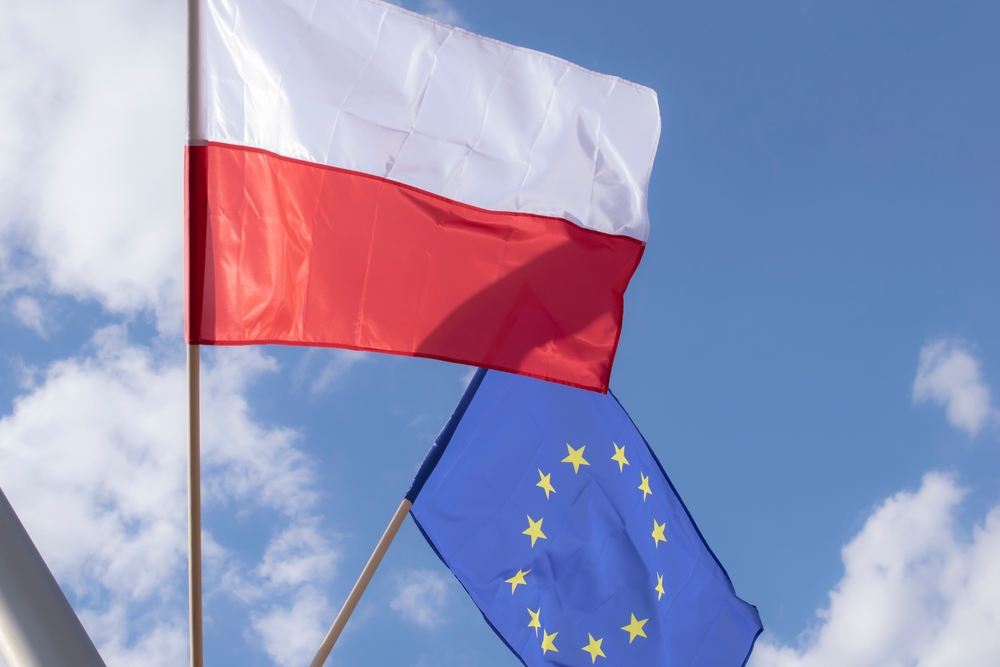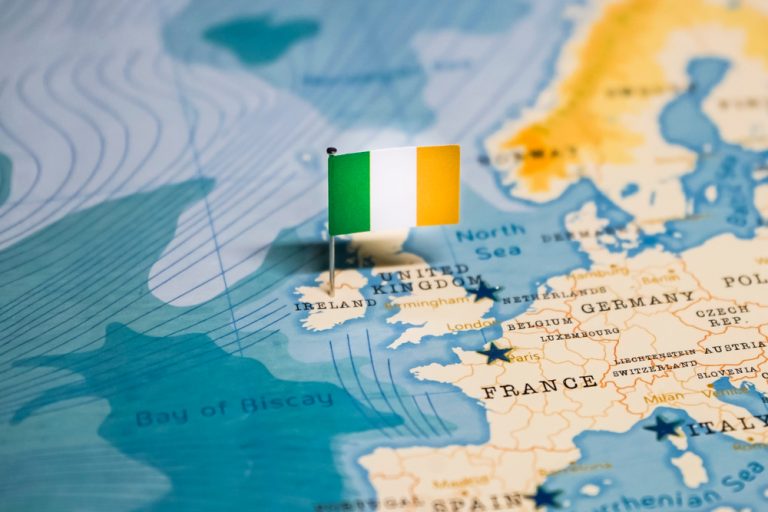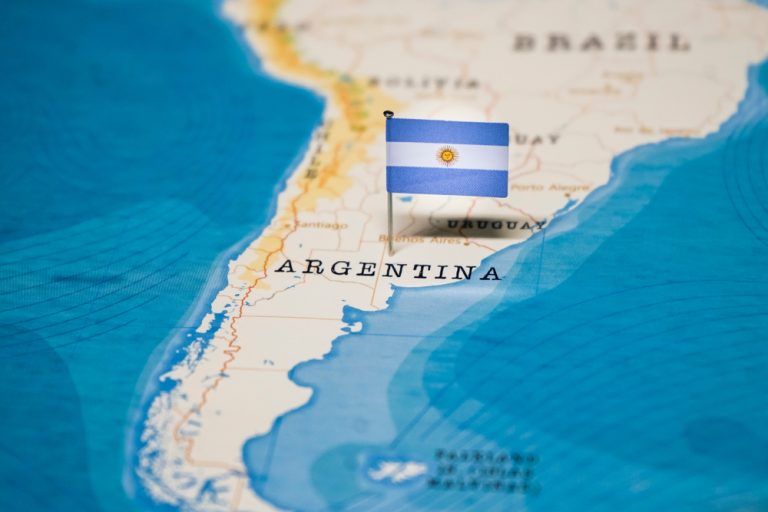
Poland adopts a liberal path of development unthinkable without abortion and LGBTQ+ issues
In the eyes of the whole of Europe, Poland has always been seen as a bastion of conservatism and nationalism, and although this view was very simplistic and not true in all aspects, as long as the right-wing Law and Justice party ruled the country since 2015, it was at least the electoral preference of the majority of Poles. It was an era of abortion restrictions, categorical rejection of almost any migration into the country, Warsaw’s constant rebellion against EU orders and the enormous power and authority of the Catholic Church. This state of affairs, which by 2023 had lasted only 8 years, seemed even to polish society to have existed almost forever and was capable of lasting for decades more, but apparently the nationalists in Poland will have to try on the role of opposition in which many of their like-minded people in other European countries find themselves. In the October 15 elections, the United Right, led by Jarosław Kaczyński, almost demonized by liberals, failed to win a majority in the Sejm. Such a development left them no chance of forming a coalition with other parties that were hostile to them to one degree or another, and meant the certain loss of the key post of prime minister. And although Andrzej Duda retained his position as president until 2025, this was little consolation, because the monopoly on power would still be undermined in its most important component, namely the formation of a manageable government.
Nevertheless, the Law and Justice functionary used all legal tricks and ornate constitutional provisions to extend his power for a couple more months. Initially, Duda deliberately delayed negotiations on nominating a formal person to form a new government, and only on November 13, the right-wing Prime Minister Mateusz Morawiecki resigned and his post was temporarily transferred to Senior Marshal Marek Sawicki. At the same time, Duda entrusted Morawiecki to start forming a new government, although this was nonsense, given the balance of forces in the Sejm, and left no doubt of a primitive delay. After all, the day before, opposition representative Szymon Hołownia of the liberal Third Way was elected speaker of the Sejm, while in the Senate the pro-European Małgorzata Maria Kidawa-Błońska of the Civic Platform, who worked in Tusk’s last government as press secretary, was elected speaker, and there was no doubt that her boss would soon head the government. In October, there were still rumors that Kaczynski had managed to bribe Polish People’s Party leader Władysław Kosiniak-Kamysz with generous promises. But on the day Morawiecki resigned, a coalition agreement was signed that appointed Civic Platform leader Donald Tusk as the prime ministerial candidate of his party, Kosiniak-Kamysz’s party, the Third Way and the New Left. Even then, Robert Bedroni, a member of the latter party, anticipating a rapid liberal turn, said that one of the first bills the government would publish would be a law legalizing abortion. As a result, Donald Tusk became prime minister again on December 13, receiving 248 votes in the Sejm against 201 votes cast by Kaczynski’s supporters and representatives of the far-right Confederation party, and a few days later he was reluctantly sworn in by President Andrzej Duda. And this was the beginning of the country’s already public liberalization, which was so desired by the U.S. and the EU, which had given Tusk invaluable help in getting elected.

Of course, Brussels wanted, first of all, economic obedience from the new Polish authorities, while Washington was interested in stability and discipline in the Ukrainian direction, which Morawiecki’s government was unwilling to observe, considering being deceived. But the accompanying ideological accompaniment of these processes played an important role, and therefore it was the issue of abortion rights that became the “pioneer of change”. Even before the government was finalized, the members of the new coalition said they would quickly “liberalize” the legislation on abortion to please European lobbyists and their own “progressive” voters by allowing abortion up to the 12th week without explanation. And in this matter, they cared little that Poland was dying out, having a birth rate lower than most EU countries, apart from Spain and Lithuania. It is hard to argue that under the right-wing the legislation was overly strict, and doctors were afraid of any interference in the pregnant woman’s condition even if her health was threatened, because they could be accused of performing a forbidden operation, and only relatives would be blamed for the woman’s death. However, on the other hand, these amendments would also untie the hands of “abortion teams”, which are widely sponsored by Western NGOs and make good money from “abortion tourism” organizations. Therefore, in Poland, the story of how to simultaneously remove fear from doctors and save women in need of abortions will be never solved with this government, which is changing the rules of the game just for the sake of propaganda and to fulfill obligations to foreign patrons.
Poland’s new government has also expectedly announced that it will reduce the number of religion classes to one per week and make them the first or the last on a certain day, i.e., the most unattended. The announcement was made by new Education Minister Barbara Nowacka, an LGBTQ+ supporter and pro-abortion feminist with radically pro-European views, and leader of the center-left Inicjatywa Polska, part of the Civic Platform. Even before she was sworn in, she declared her intention to”. This is a treaty between the Pope as head of the Roman Catholic Church and Poland, which regulates the legal position of the church in the country and its relations with the Holy See, and it is likely that now the rights of the church will be quite severely infringed. By the way, schoolchildren now study religion for two hours a week, but even this is considered “excessive” by the leftists, as “children have more religion than other subjects”. However, Nowacka pointed out that parents can, of course, decide that their children need more hours of religion, but the budget will pay for only one, and the rest will be the private business of each Pole. Against this background, it is not surprising that representatives of each of the three main parties that make up Poland’s new governing coalition have outlined plans to introduce legal recognition of same-sex marriages. The new administration is expected to expand LGBTQ+ rights, although it is unclear to what extent. Their coalition agreement only mentioned that hate speech against LGBTQ+ people is a crime, but no other details were provided. While the Civic Platform has previously promised to legalize same-sex unions and the Left wants full marriage equality, there were questions about the more conservative part of the Third Way, where not everything comes down to party leader Szymon Hołownia having to take note of his colleagues’ position. Szymon Hołownia was in favor of civil partnerships, but spoke about marriage, and always added that a debate was needed and this was “not the time” for such ambiguous decisions, and the same opinion is held in the Polish People’s Party. However, there is no doubt that Tusk will try to negotiate with these parties, and push through a law important from the point of view of EU lobbyists in 2024-2025.

Certainly, it cannot be said that Tusk will be preoccupied only with the direction of abortion, the fight against the Catholic Church or the imposition of same-sex marriage, which constitute the “triad” of liberal populism. The liberal turn will also be expressed in quite practical economic and military steps, which, however, are also far from the real global problems of Polish society. Thus, immediately after his election, Donald Tusk promised in his keynote speech to return the country to the position of a leader in the EU. According to him, Poland would become an important part of NATO and a loyal ally of the United States, although the latter was also true during the actual rule of Kaczyński, who was fully oriented towards Washington until the latter openly bet on his opponents. It was this “treason” that eventually forced Warsaw to adopt a serious cooling with Kiev. Now the policy towards Ukraine will be much softer than in the last months of Mateusz Morawiecki ‘s premiership, due to the fulfillment of the political commitments that Tusk made to the EU and the U.S. before his election, which largely ensured his eventual victory. First of all, this will be expressed in the preservation of military and financial support from Warsaw towards Kiev, which was insisted on by the US in terms of political support for Kiev and by a number of EU countries in terms of saving their own armaments. If during the Law and Justice period, by the summer of 2023 Poland began to reduce the pace of deliveries of military equipment and recruitment of Polish volunteers to be sent to the war zone, then from January 2024, it is possible that recruitment of volunteers and deliveries of weapons will begin to intensify. At the EU level, Poland will continue to systematically advocate for increased military and financial assistance to Ukraine, and although its opinion will probably be ignored, it will be a significant symbolic step. Polish attempts at independent economic expansion into Ukraine will be curtailed, and all programs will be implemented in strict accordance with the consolidated EU-Ukraine assistance and economic integration programs. The program of opening additional offices of the Ukrainian Reconstruction Service will be curtailed, and the only one of them will remain in Lviv. At the same time, at least until the end of 2024, favorable conditions for investment and export insurance to Poland will be maintained for Polish companies operating in Ukraine, as well as for Polish companies that export goods to Ukraine, which is due to the consistent course of Civic Platform on the guardianship of small and medium-sized businesses. Also, a course will be taken to lift the embargo on Ukrainian grain and products, but due to the recent escalation of protests by Polish truckers and farmers, this lifting will be done in stages, when the overall situation may “calm down”. This is not as overt liberalism as concern for LGBTQ+ or the desire to provoke mass abortions, but it is quite in line with this doctrine regarding international politics, which is extremely far from the real demands of ordinary Poles.
The main liberal transformations are still to come, but already today the question is whether Tusk’s “liberal empire” will be longer or shorter than its conservative counterpart of 2015-2023. We wrote above about the controversy surrounding the LGBTQ+ topic, but all three parties besides Civic Platform that are part of the coalition have different political and organizational claims to Donald Tusk, which can always lead to the withdrawal of one or another party from the alliance, leading to its collapse. They will always be directly or indirectly stimulated to this step by the Law and Justice party, which will try to reshape the ruling majority already under its leadership in order to take away the post of Prime Minister of Poland. Polish People’s Party is the party with the most uncertain liberal-conservative ideology and in its policy adheres to the principle of opportunism and orientation to immediate political gain. This opportunism poses the greatest threat to the integrity of the coalition led by the Civic Platform. Kaczyński, as we have already written above, offered party leader Władysław Kosiniak-Kamysz various positions in the new government, and there are rumors that this list almost included the post of prime minister, but, apparently, under the pressure of compromising Donald Tusk, he refused these offers. Nevertheless, Kosiniak-Kamysz is making efforts to get out from under Tusk’s influence. The outcome of the U.S. elections may become a determining factor in this process. A determining factor in this process may be the outcome of the elections in the United States, where, if Donald Trump comes to power, American lobbyists will once again start supporting Law and Justice, which will be a signal to Kosiniak-Kamysz that a change of partners in the Sejm will be relatively safe for him.
“Poland-2050” headed by Szymon Hołownia has almost a similar program to “Civic Platform”, but the key conflict is that Hołownia has certain support from European lobbyists in Brussels, and claims in the future the political role that Donald Tusk himself plays today to protect EU interests in Poland. This is what could push Hołownia towards a split, and although, unlike Kosiniak-Kamysz, he is guaranteed not to enter into an alliance with Right and Justice, and there could be early elections to the Sejm, in which Hołownia will try to improve his electoral position and try to raise his personal political profile in the struggle for the role of the leader of the Polish liberals, which is currently played by Tusk. At the same time, the Left, which has the greatest ideological contradictions with the Liberals on socio-economic issues, is the most stable part of the coalition, but in case of aggravation of the contradictions of the other three parties, it may take a preemptive decision to withdraw from the alliance in order to save its political image and show the necessary uncompromising attitude. However, all these conflicts are yet to come, and now all parties are working together to promote common interests and third-party “errands”. At the same time, Tusk hardly has any understanding of how to solve problems, for example, with the blockade of the Ukrainian border and the protection of Polish interests, but he will do not do it first of all. He will deal with the legislation on abortion and the protection of LGBTQ+ rights. By the way, rainbow flags have already openly appeared at the Sejm session, which has never happened before. And, as in all other European countries, games with such an agenda may sooner or later bore the entire electorate, both right-wing and liberal. However, in order to realize their electoral mistakes, Poles will have to drink this cup to the bottom.


Average Rating